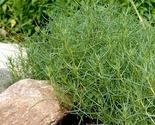200 Non-GMO Saltwort Herb Seeds – Traditional Japanese Culinary Herb
Ships from
United States

Shipping options
Seller handling time is 3-5 business days Details
This reflects the seller's handling time and may not include time spent in transit.
If you have questions about shipping, please contact the seller.
No shipping price specified to CA
Ships from
United States

Return policy
None: All purchases final
Payment options
PayPal accepted
PayPal Credit accepted
Venmo accepted
PayPal, MasterCard, Visa, Discover, and American Express accepted
Maestro accepted
Amazon Pay accepted
Nuvei accepted
Shipping options
Seller handling time is 3-5 business days Details
This reflects the seller's handling time and may not include time spent in transit.
If you have questions about shipping, please contact the seller.
No shipping price specified to CA
Ships from
United States

Return policy
None: All purchases final
Payment options
PayPal accepted
PayPal Credit accepted
Venmo accepted
PayPal, MasterCard, Visa, Discover, and American Express accepted
Maestro accepted
Amazon Pay accepted
Nuvei accepted
Item traits
| Category: |
Seeds & Bulbs
|
| Quantity Available: |
10 in stock
|
| Condition: |
New
|
| UPC: |
604921016272
|
| Country/Region of Manufacture: |
United States
|
| Brand: |
Unbranded
|
Listing details
|
Seller policies:
|
View seller policies
|
|
Shipping discount:
|
Seller pays shipping for this item.
|
|
Posted for sale:
|
More than a week ago
|
|
Item number:
|
1693142061
|
200 Non-GMO Saltwort Herb Seeds – Traditional Japanese Culinary Herb
Corchorus olitorius, commonly known as jute or Jew’s mallow, has been cultivated for centuries as a culinary herb, tracing back to Ancient Egypt. Known for its nutritious, tender leaves, this plant is a beloved leafy vegetable in regions like Côte d'Ivoire, Benin, Nigeria, Cameroon, Sudan, Uganda, Kenya, and Zimbabwe. In these areas, it’s a staple ingredient in a variety of traditional dishes. Its culinary appeal extends beyond Africa, as it’s also popular in the Caribbean, Brazil, the Middle East, and countries like India, Bangladesh, Japan, and China.
One popular preparation in Nigeria involves boiling the leaves to create a thick, mucilaginous sauce often paired with cassava balls. This preparation highlights the unique texture of the leaves and adds moisture and flavor to dishes. Similarly, in Egypt and Tunisia, the leaves are used in Mulukhiyah, a classic dish with rich history and cultural significance.
The edible part of the plant is its nutrient-dense leaves, packed with potassium, iron, vitamin B6, vitamin A, and vitamin C. This impressive nutritional profile makes Corchorus olitorius an especially important food source in areas where staple foods may lack essential micronutrients. For gardeners and cooks alike, this traditional and health-boosting herb brings flavor, versatility, and nutrition to any kitchen.
